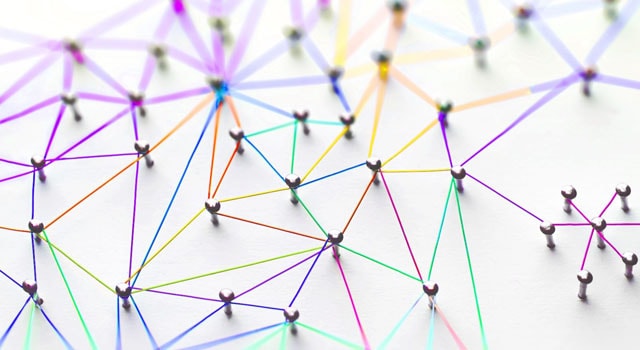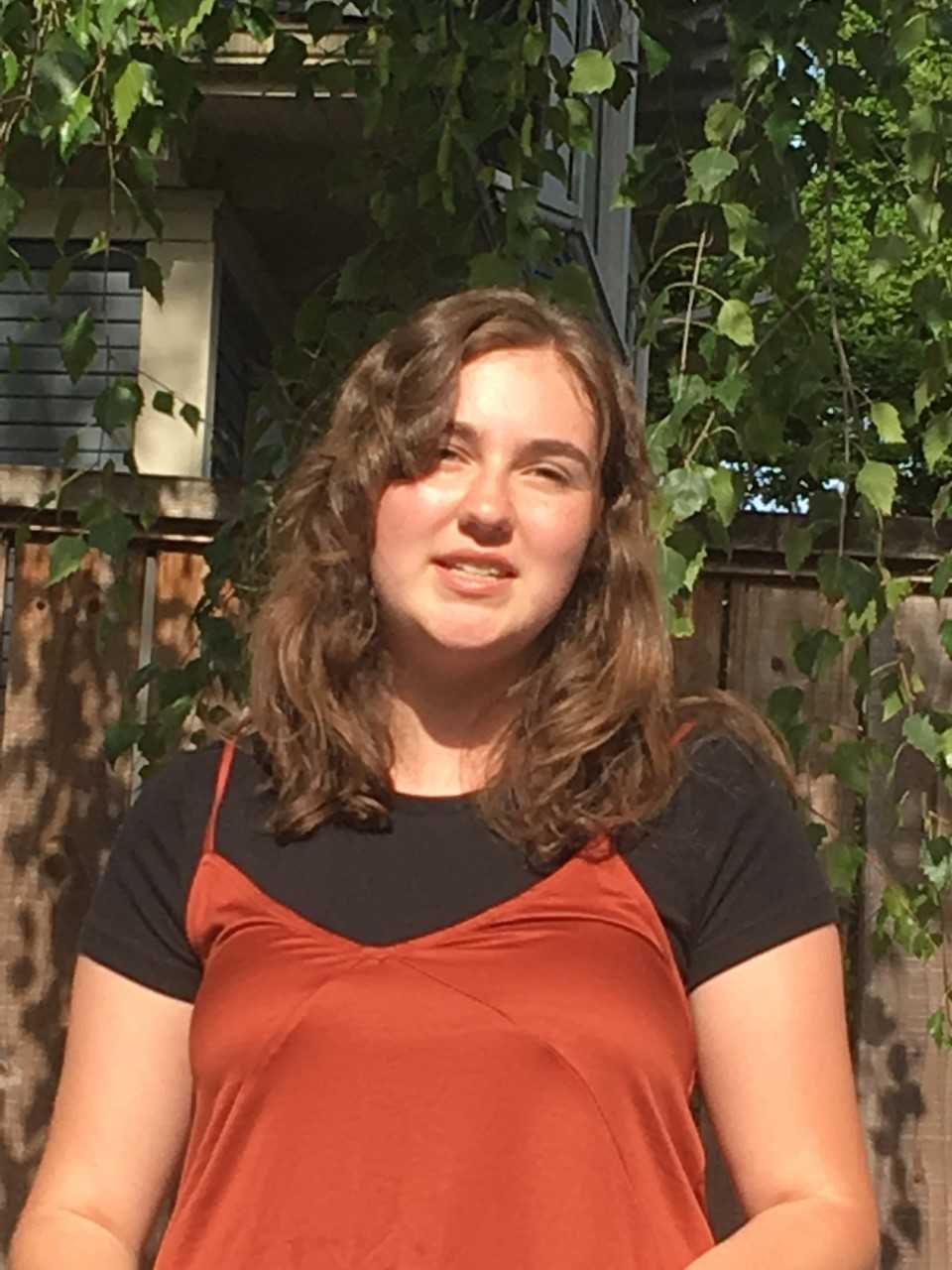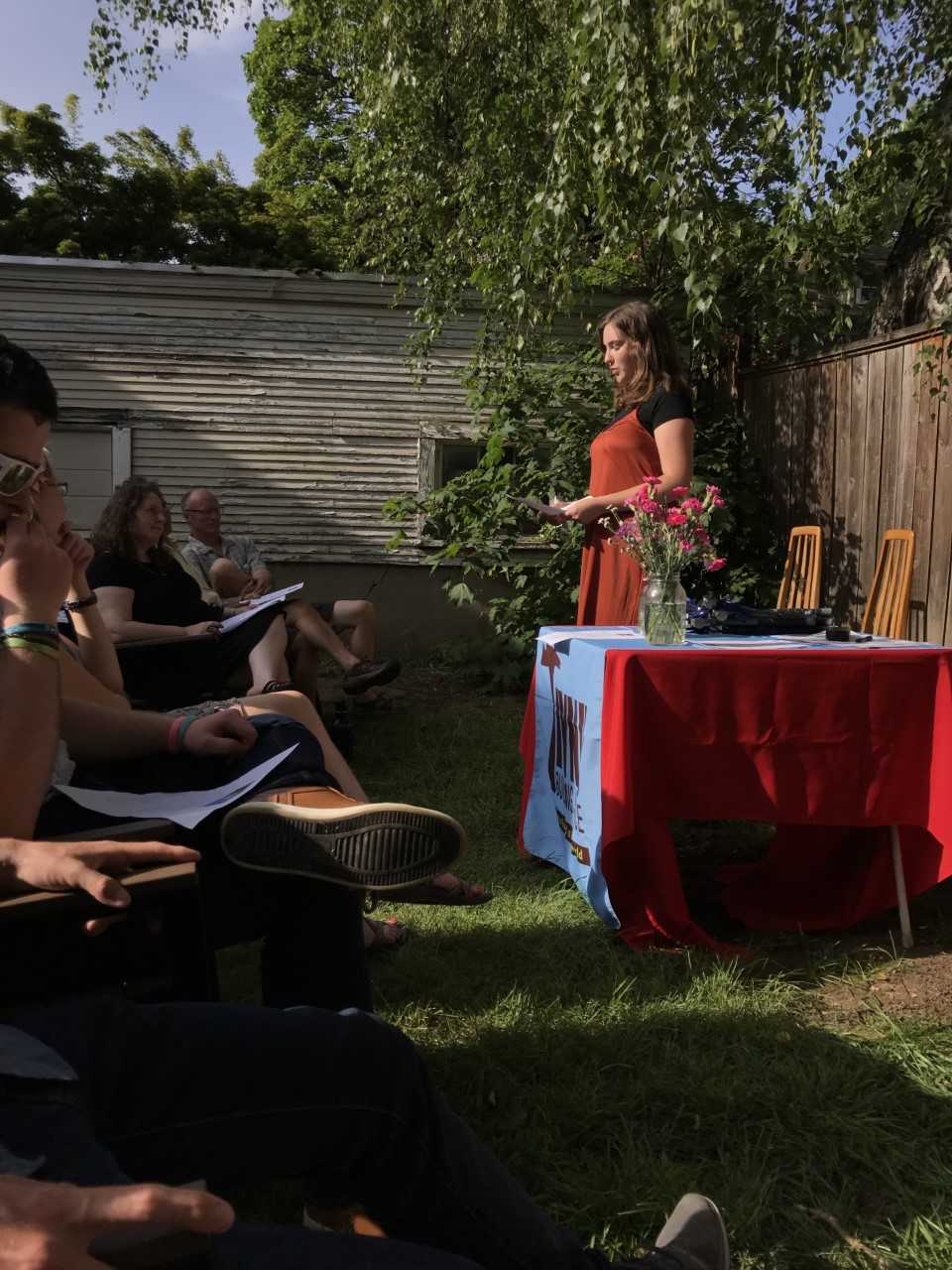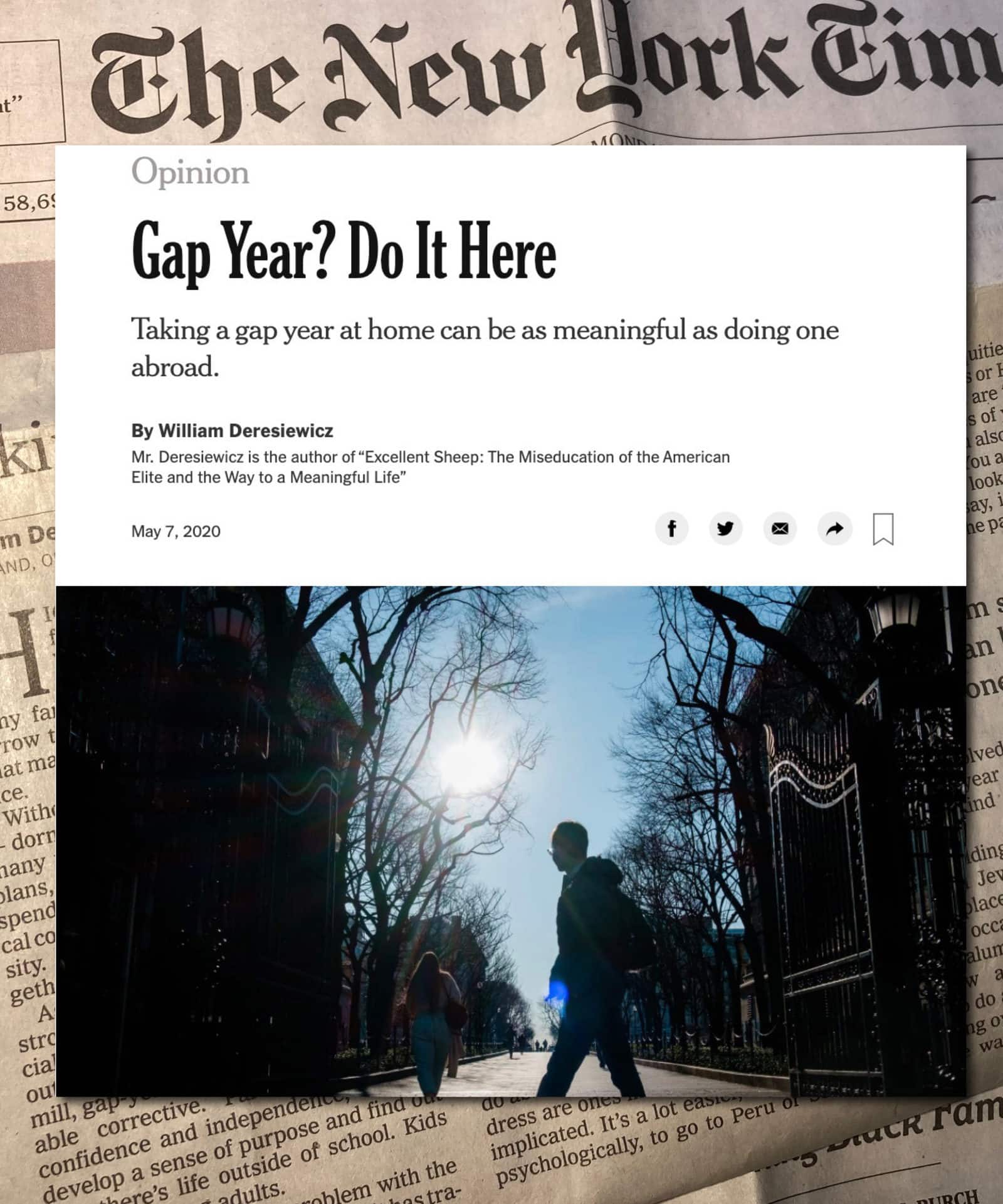On May 12, 2019, 3 representatives of our Tivnu 5 cohort gave some beautiful remarks at our Siyyum ceremony (graduation/completion). This is one of them!

Knowledge and Responsibility
Delivered by Zoe Schacter-Brodie
Over the past few months, I’ve spoken to high school groups and Jewish adults about Tivnu pretty frequently, and any family gatherings have turned me into Tivnu’s spokeswoman, fielding questions about what exactly a gap year is, how I fill my days and weeks, and if I feel like my participation in Tivnu was the right decision. Anyone who’s accompanied me to a Tivnu presentation is familiar with my refined shpiel: a calculated collection of sentences about my turbulent senior year and how a break seemed necessary, my discovery of Tivnu through a high school trip with my synagogue, the ways that the program has refreshed me and made me more confident, driven, and aware.
The looming end of Tivnu has ushered in a new set of questions. As we grapple with the end of an intense, fulfilling, beautiful nine months, I find myself trying to make sense of it all, trying to articulate meaning beyond practiced phrases. I can say “Tivnu has made me more assertive” or “I have more of an idea of how I want to spend my future” all I want, but it doesn’t give me the clarity I want. That clarity is difficult, especially at the moment- I feel deeply renewed and changed by these months, still reeling from new experiences and discoveries in a way that doesn’t make for an easy resolution.

But to sum up a whirlwind of feelings and knowledge and memories in a simple way, I know things I didn’t before—about myself, about the people I’ve lived closely with for the better part of a year, and about the deeply rooted flaws of the institutions controlling our world. And that can feel exhausting and like I’m not quite sure what to do with this knowledge, but Tivnu has taught me that this gives me a responsibility: a duty to approach the world and those around me with keen awareness and compassion.
As the twelve of us navigated communal living, a number of emotional circumstances, and the challenges of Tivnu together, I reached an unprecedented level of familiarity with my housemates and program-mates. A footstep in the kitchen at two in the morning told me that Rosa was making middle-of-the-night spanakopita, and a faintly heard sniffle from across the house meant Tamir had emerged from his room. Of course this closeness brought affection and a deep sense of community, but I can’t say there aren’t also challenges that come with it.
Someone’s habit of absentmindedly scuffing their shoes off in the middle of a walkway can turn from a quirk that barely registers to the bane of your existence. A half-scrubbed dish returned to the cabinet can feel like the end of the world after nine months, an emblem of ignored responsibilities and shortcomings. And perhaps, had this tight community been experienced in a different environment, that pessimistic, exhausted outlook would have won. But this is Tivnu, a community that constantly reminds me to love, help, and care for those around me.
And I know my fellow Tivnuniks beyond the sound of their footsteps and coughs, or their schedules and cleanliness. I know their favorite TV shows and foods, what a slight shift in their expressions and tones mean, how they show they care. They aren’t just people whose mannerisms I’ve memorized, but rather people I care about genuinely and deeply, and that gives me the responsibility of looking after them, compromising and holding space for their feelings, and maybe even washing a dish or two that I know for a fact isn’t mine.

The same feels true for my view of social justice and the world as a whole. Through both firsthand community work and Tivnu’s educational programming, I’ve become even more aware of the injustices surrounding us—Tivnu has provided me with exposure to the facts and inner workings of complex issues, and the humanity behind them. Like I said, this can feel exhausting, like the world is so ridden with problems and suffering and corruption that there’s nothing I can do but stew in it. But Tivnu has also shown me that I have the ability to be a part of a movement towards justice. This year has given me an idea of my power to effect change, and the importance of harnessing and using this power. This is the responsibility we hold as Jews and as people. I have a responsibility to make the world better for my seventeen first graders at Boise-Eliot Elementary and everyone else who’s left their mark on me, and with the knowledge and compassion and invigorated desire for action that Tivnu has given me, that responsibility extends to whatever I may encounter next.
Follow Us
Sign Up For Updates
Taking a gap year in the US can be as meaningful as doing one abroad.
 Featured in The New York Times
Featured in The New York Times